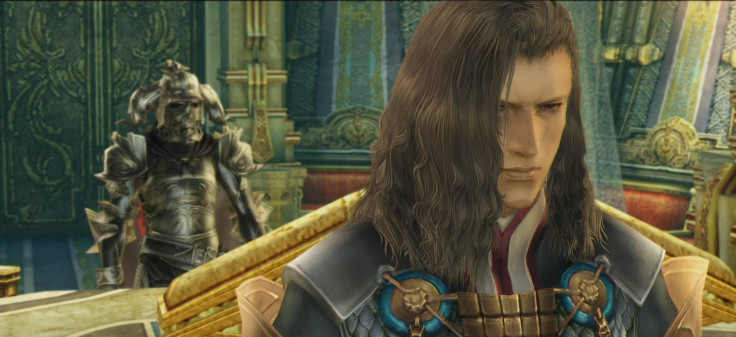It’s hard for me to compare and contrast Final Fantasy 12 : The Zodiac Age with its 2006 predecessor because I never played it. Final Fantasy XI was an MMO, I couldn’t get into Final Fantasy X (spare me the angry emails, I know A Mistake Was Made and I will rectify it someday) and I didn’t complete Final Fantasy IX , so I guess somewhere along the line, I just fell off the wagon.
(I blame The Sims , which took over my teens completely. My purchasing benchmark for new laptops remains whether or not it can run the most recent version of The Sims comfortably with all expansion packs.)
So when I had the opportunity to spend some time with Final Fantasy XII: The Zodiac Age, my focus was not on whether or not the remake lived up to the original. I’ll discuss some of the enhanced gameplay features, but I can’t compare those features to an original I never played. Instead, I had to decide whether or not Final Fantasy XII: The Zodiac Age stands on its own two feet as a game that folks without 2006-era nostalgia glasses can enjoy.
The answer: Yes. Especially if you’re the kind of person who really misses a good ol’ JRPG in your life and has run through Persona 5 more times than you care to count, I think you’ll really enjoy Final Fantasy XII: The Zodiac Age .
Final Fantasy XII ’s upgrade system has been overhauled from the notorious and cumbersome license board interface to a less intimidating, more traditional system that makes creating different character roles more approachable: the International Zodiac Job System after which the remake is named.
Instead of a huge chessboard on which you unlock abilities and stat boosts for every character (leading to every character having the exact same abilities and stat boosts), you have smaller upgrade boards that fit each character’s ideal combat role. You can still upgrade different roles for each character as you progress and choose an additional job board to further finetune your character.
The best thing about the Zodiac Job system is that when used in conjunction with gambits (instructions for your party’s AI), your party feels more yours than ever before, even though you can literally play as any character. Tinker with the gambits and optimize your jobs well enough and battles practically play themselves, with you swooping in just in case something goes off the rails.
Blessedly, a new Speed Mode feature lets you put the game run in fast-forward, which means you don’t have to sit through enemy or character combat animations whose lustre have worn off. It also, hilariously, has your characters trot very briskly through Final Fantasy 12 ’s huge open world. A huge increase in resolution really pays off, as the characters practically glow with their new textures.
Final Fantasy XII , controversially, moved away from the turn-based combat model of the old Final Fantasy games, but those fresh to the series will find that the combat system really feels modern. You run into enemies, enemies run into you, and it all feels much more real-time. The combat system is reasonably intuitive but very active, which is something a modern gamer should be well accustomed to.
What you won’t see in Final Fantasy 12 is any change to the narrative. No post-game DLC to fix issues with the story: what you get in 2006 is what you get now, including Vaan, Vaan’s crop top, and a story some folks still don’t like. (And Vaan.)
But you also still get Balthier and Fran, as well as a game that really does feel like something new made newer, not something old made fresh.
Final Fantasy 12: The Zodiac Age comes out on July 11 with new features including a Trial Mode (can your gambits and job skills take on 100 consecutive, increasingly tougher battles?), Trophies, share functionality and more. Will you give Final Fantasy 12 another try? Feel free to let us know in the comments section below.














![[EG April 19] Best 'Stardew Valley' Mods That Will Change](https://d.player.one/en/full/226012/eg-april-19-best-stardew-valley-mods-that-will-change.png?w=380&h=275&f=955520b8313253ee3c39c791f6210f38)



